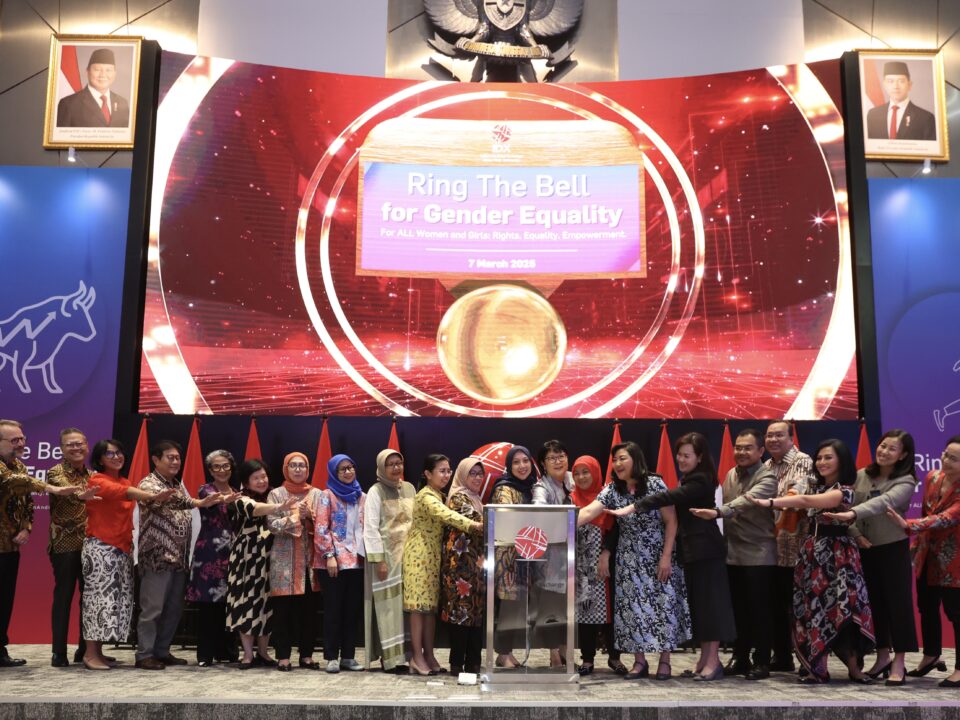Women in STEM 2023: Progress or Setback?
December 24, 2023
More than just like-for-like wages needed to tackle gender pay gap
December 24, 2023Image by Freepik
As many as 98.5 percent of women who experience career breaks have the desire and high confidence to reenter the workforce. In the same survey, Opportunities for Women Returning to Work After Career Break as Main Caregiver, it was also observed that the majority of respondents were in their productive years, with an average age range of 29-33, accounting for 28.90 percent, while 59 percent held bachelor’s degrees. However, women tend to have their own fears when it comes to reentering the workforce after a career break.
Yet, the current organization is beginning to recognize the talent of this community. Quoting from Harvard Business Review, 87 percent of recruitment managers stated that they no longer considered candidates with career breaks as a red flag.
For those who are looking to return to the workforce, here are some ways to help prepare yourself.
Tips for Creating an Outstanding CV for Recruiters Do:
- Create different versions of your resume for each specific job opportunity.
- Begin with a brief summary of who you are and why you are the right fit for the job.
- Highlight achievements from previous relevant jobs.
- Use active verbs such as “Developed,” “Coordinated,” and “Assisted.
Avoid:
- Include cliches or overused phrases to explain your strengths.
- Overload your resume with excessive content or using small font sizes.
- Copy and paste your resume onto your LinkedIn profile.
Tips for Crafting a Strong Cover Letter
Do:
- Write a strong opening statement that clarifies why you are interested in the job and what you can offer the company.
- Keep it short! Remember that recruitment teams read many cover letters in a day and need to read them quickly.
- Share achievements that demonstrate your abilities to overcome the challenges faced by employers.
Avoid:
- Confuses creativity with humor. Including too many humorous statements in your cover letter may make you appear less professional.
- Send a generic cover letter. Each cover letter should be tailored to a specific job.
- Overdoing the praise or saying anything you don’t mean. Authenticity is crucial!
Strategies for Answering Interview Questions
Question #1: “Why do you want to work here?”
There are three approaches that can be implemented. You can use one approach or combine two of them. However, it’s important to keep your answer brief.
1. Express your passion for the company’s product/service/mission.
- Employers want to know if you are genuinely passionate about what they are doing.
- Employers want you to share the same values as their company, but you don’t need to overdo it or pretend.
- Clearly describe your enthusiasm.
Example: “I am very excited about X and would be thrilled to work for an organization that embraces the same values…”2. Explain why you will enjoy the roles and responsibilities you are applying for.
- Employers want to know if candidates are dedicated to the roles and responsibilities they will be assigned.
- Therefore, you need to clarify that you will enjoy the roles and responsibilities. By enjoying it, you will work better and longer.
Example: “Analyzing data has always been enjoyable for me. Using data to tell and communicate ideas is a unique challenge that I appreciate. Therefore, I look forward to this job and collaborating with this team.”3. Explain how you envision yourself to succeed in the role, using the skills and experience you possess.
- Employers want to know who you are, what you can do, and what you can achieve in the future.
- Express confidence in your abilities to succeed and grow in the role.
Example: “I can envision myself succeeding in this position because I have performed similar work in the past and know what it takes to develop this company.”Question #2: “So, do you have any questions for me?”
There are two approaches that can be used, either individually or in combination, to answer this question. Personalize the question.
1. Instead of using a general question, ask a question as if it is specifically related to you.
Example:
- What would my day-to-day responsibilities be in this role?
- Which departments would I be interacting with in this role?
- How do you usually onboard new employees?
- What are the most important things I need to accomplish in the first 90 days?
- Can you tell me more about the team I’ll be working with?
Don’t be discouraged if your CV and interview didn’t go as expected. Every experience is an opportunity to learn and grow. Accept the challenges with resilience, take valuable lessons, and keep moving forward. Success will come at the right time if you remain persistent and determined.
10 July 2023 | Tiara Tri Hapsari





